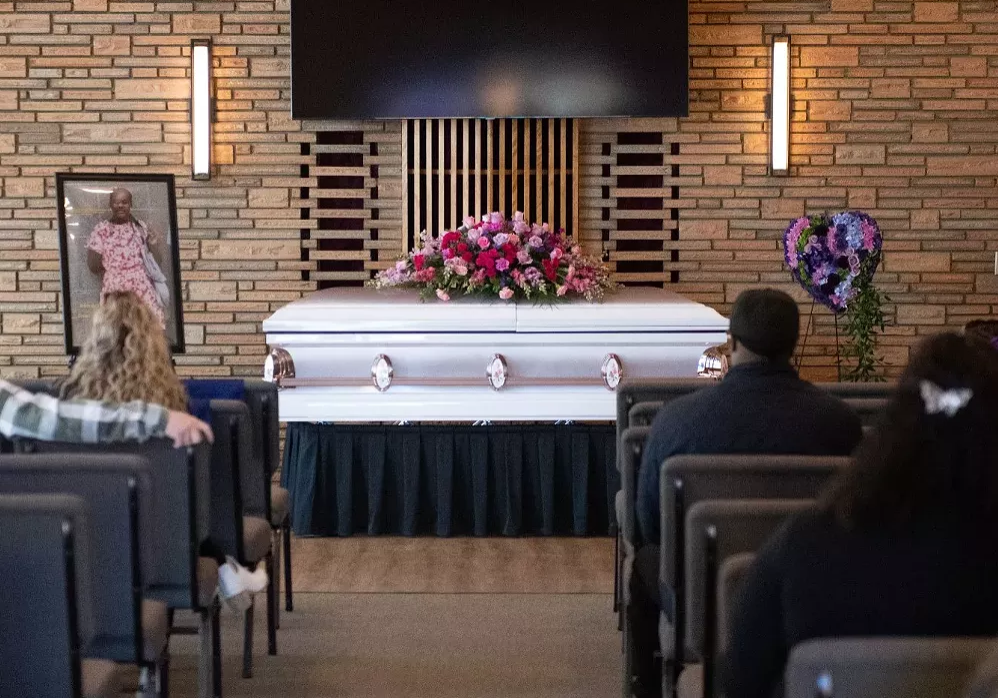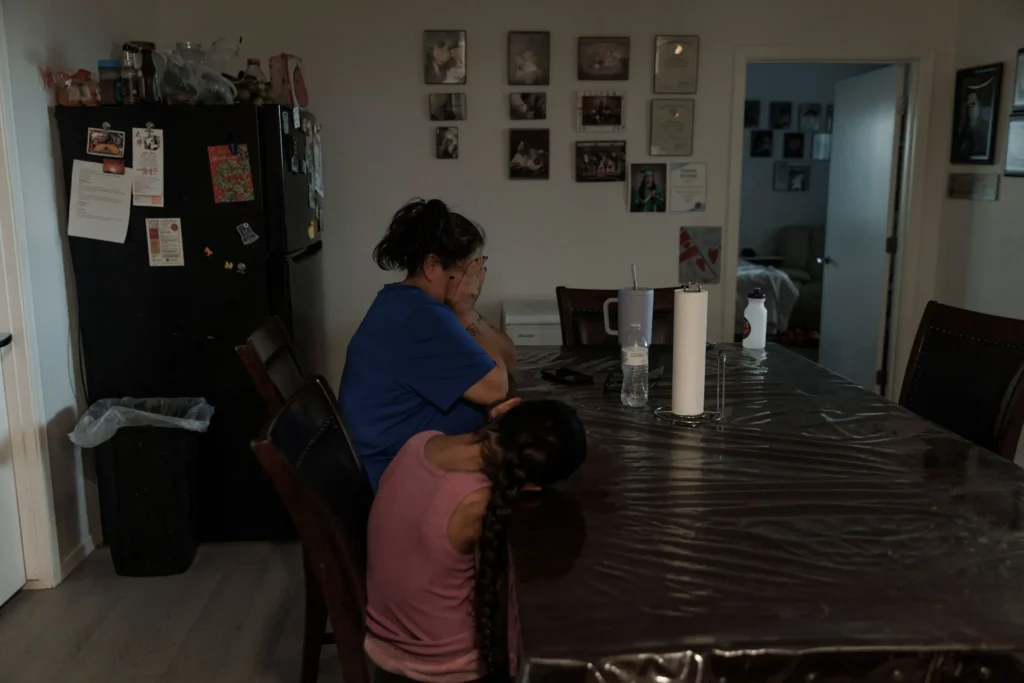From Our Newsroom Partners
Click the + sign on the right to filter stories by state.
- All
- Arizona
- California
- Colorado
- Georgia
- Illinois
- Montana
- new mexico
- Oklahoma
- Pennsylvania
- Tennessee
- Texas
- US
- Washington
- West Virginia
Gaps in mental health training, rural access to care compound Arizona’s maternal mortality crisis
From Arizona Center for Investigative Reporting
Within hours of giving birth to her first child, Araceli Aquino-Valdez was engulfed by an intense sadness. She sobbed for days after arriving home, grieving the loss of her life before motherhood and feeling dismissed by her care providers.
Black farmers face specific, outsized challenges in rural mental health crisis
From NPR affiliate KOSU
Oklahoma State Highway 7 runs by the Mary T. Tatums Municipal Building in one of Oklahoma’s historic All-Black towns, Tatums.
Bonnie Hooks sits with her neighbors at one of the round tables inside the building. Like her grandmother, Hooks is a farmer in Tatums, where she raises pigs.
Arizona cracked down on Medicaid fraud that targeted Native Americans. It left patients without care.
From the Arizona Center for Investigative Reporting
Before her fifth birthday, Rainy had experienced a lifetime of trauma. As an infant, she witnessed violence at home before child welfare authorities intervened and her parents were incarcerated. Night terrors followed. Then, she endured the death of her great uncle who had taken on the role of dad.
Despite efforts to close gap, parity in mental health care remains elusive
From The Center for Public Integrity
In recent years, mental health care has become a mainstream issue.
President Biden proposed an expansion of services nationwide. Lawmakers and celebrities speak openly about their struggles. States are providing incentives to expand the behavioral health workforce. Companies are recognizing the need for mental health leave. Telehealth care is rapidly expanding.
You Report an Unhoused Person in a Mental Health Crisis. This Is What Happens Next
From the San Francisco Public Press
In San Francisco, it is not uncommon to cross paths with a person experiencing homelessness in the throes of a mental health crisis. The scene can be tragic, confusing and sometimes might feel dangerous.
Bystanders might wonder how to summon help from the city — and what will happen if they do.
The Often Vicious Cycle Through SF’s Strained Mental Health Care and Detention System
From the San Francisco Public Press
On a windy day last fall, a slender man stood on a corner of the bustling intersection at Van Ness Avenue and Market Street, anxiously seeking help. He flagged us down, asking that we call an ambulance. He said the dead leaves on the ground were out to hurt him and that his legs were bleeding. We didn’t see any blood. He told us his name was Jay and that he was unhoused.
Deadly Failure: A Sailor Was in Crisis. Her Command Kept the Pressure on Anyway
From the Voice of San Diego
March 6, 2018, was another mild and sunny day in San Diego. Petty Officer 2nd Class Tiara Gray, who was 21 years old, was somewhere off the coast, onboard the USS Essex, writing in her journal. It was 27 days before she died.
She called the number on her syllabus offering counseling. No one picked up.
From the WBEZ
Isabelle Dizon describes her transition to college as “messy.” She went from a public high school to a private art school that was far less diverse and cost too much, she said. The expense was stressful and she couldn’t connect with her new classmates, most of whom were more well off. Navigating the social scene over Zoom and from behind masks at the height of the pandemic made her feel even more disconnected.
High need, low accessibility: Oglethorpe County residents face barriers to mental health care, even as teens and schools are willing to have the conversation
From The Oglethorpe Echo/the Cox Institute’s Journalism Writing Lab at the University of Georgia
Sonja Thompson Roach remembers the moment last year when a photographer took photos and interviewed her son and his friends for a Time magazine story on mental health and teens.
The photo and interview shoot in her Northeast Georgia home required absolute quiet for the audio and the right time of day for the lighting.












